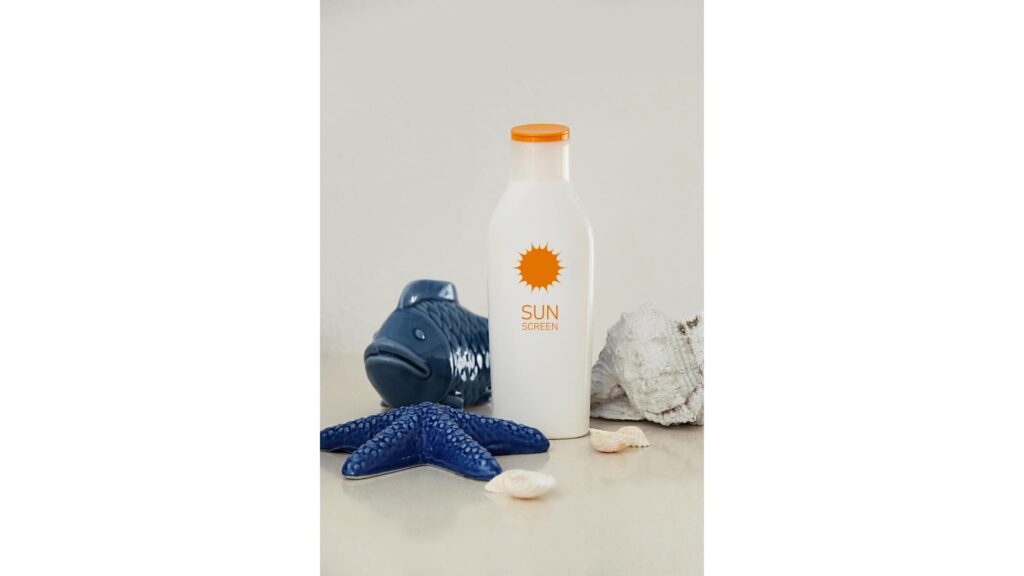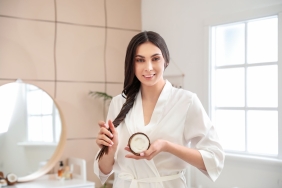Basking in the sun is an enjoyable activity for humans. However, the sun's ultraviolet (UV) rays can damage our skin. One of the most common consequences of this damage is skin cancer. SPF (Sun Protection Factor) is a measure used to determine the effectiveness of sun protection products. SPF determines the degree to which it protects your skin during sun exposure. In this article, you'll learn what SPF means, how it works, and the importance of using it correctly.

SPF (Sun Protection Factor)
Sun exposure can occur as part of everyday life, not just at the beach or on vacation. The risk of exposure to the harmful effects of the sun may increase, especially during outdoor activities, sports activities or daily walks. Therefore, it is important to use products containing SPF in your daily life. It is also important to use other protection such as a hat, sunglasses and protective clothing. Sun protection measures are even more important, especially for young children. By choosing daily use products such as moisturizer, foundation or lip balm, you can protect your skin from the effects of the sun and make it a part of your daily routine.
SPF should be used year-round, not just in the summer. Even in winter, you can be affected by the sun's harmful UV rays. UV rays reflected by snow can damage your skin. Therefore, it is important to continue using products containing SPF as part of your daily routine. Additionally, there is a risk of sun exposure even on cloudy days because clouds do not completely block UV rays. Therefore, providing SPF protection in all seasons and all weather conditions will help maintain the health of your skin and your overall well-being.
What is SPF?
SPF (Sun Protection Factor) is a measure of sun protection products. The SPF value indicates the length of time the product protects the skin against the harmful effects of the sun. For example, a sunscreen with SPF 30 extends the time you expose your skin to the sun by 30 times. However, SPF only protects against UVB (ultraviolet B) rays. To provide protection against UVA (ultraviolet A) rays, the product must bear the “Broad Spectrum” label.
How Does SPF Work?
The working principle of SPF is to block the sun's UVB rays that damage our skin. SPF protects your skin against burn-causing UVB rays. For example, skin that would normally burn in 10 minutes can be exposed to the sun for up to 300 minutes with a product with SPF 30. This means that SPF extends the time it takes to protect your skin from sunburn. However, no matter how high the SPF value, it is important to renew sun protection products regularly. Factors such as sweating, swimming or towel drying may reduce the effectiveness of the product.
How to Use SPF?
Using SPF products correctly is an important part of protecting from the harmful effects of the sun. Here are some tips for proper use of SPF:
- Broad Spectrum Products: Make sure your sun protection product is labeled “Broad Spectrum.” This means it protects against both UVA (Ultraviolet A) and UVB (Ultraviolet B) rays.
- Application Amount: It is important to apply an adequate amount of SPF product. Apply the product broadly to completely cover your skin. Generally, about two tablespoons (30 ml) of sunscreen is required for an adult body.
- Regular Renewal: It is important to renew sun protection products regularly. Generally, you need to reapply every two hours or after getting in and out of water.
- Time to Go Out in the Sun: Avoid going out in the sun during the hours when the strongest sun rays occur. At noon (between 11:00 and 15:00), the sun's UV rays are stronger. If you must be outside, take extra precautions such as staying in shaded areas and wearing a hat, sunglasses and protective clothing.
- Other Protectors: Sun protection products alone do not provide sufficient protection. It is also important to use other protection such as a hat, sunglasses and protective clothing. Sun protection measures are even more important, especially for young children.

SPF (Sun Protection Factor) is a measure used to protect our skin against the harmful effects of the sun. When used correctly, sun protection products containing SPF protect our skin from sunburn, skin cancer and other sun damage. However, for SPF to be effective, it must be renewed regularly and used in conjunction with other sun protection measures. Remember, it is important to protect your skin while enjoying the sun. Don't forget to use SPF when you go out in the sun and don't neglect other protective measures. You can live a healthy and happy life by protecting your skin from the harmful effects of the sun.

















